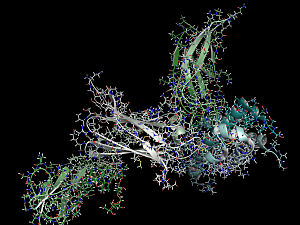A substantial proportion of patients with ulcerative colitis (UC) who require total proctocolectomy with ileal pouch–anal anastomosis (IPAA) develop a chronic pouch disorder (CPD). Ustekinumab administered every eight weeks (q8w) can be an effective treatment for CPDs, but some patients lose response.
Rahul S. Dalal, MD, MPH, the inflammatory bowel disease fellow in the Division of Gastroenterology, Hepatology and Endoscopy at Brigham and Women’s Hospital, Jessica R. Allegretti, MD, MPH, associate director of the Crohn’s and Colitis Center, and colleagues explored the effects of intensifying the ustekinumab dose to q6w or q4w in this setting.
In a retrospective study published in Inflammatory Bowel Diseases, they report the strategy was safe and effective.
Methods
The researchers identified 46 adults with UC who underwent total proctocolectomy with IPAA and subsequently initiated ustekinumab for a CPD (chronic antibiotic-refractory pouchitis, n=6; cuffitis, n=4; Crohn’s disease of the pouch, n=36).
Patients started on ustekinumab q8w between January 1, 2016, and March 1, 2020, and their electronic health records were reviewed for data available through August 1, 2020.
Characteristics of the Cohort
Before IPAA, all patients had received at least one tumor necrosis factor-α inhibitor, and 24 had previously received vedolizumab. After IPAA and before starting ustekinumab, 38 patients were treated with at least one TNF-α inhibitor, and 21 of those 38 also received vedolizumab. 14 patients had pouch-associated fistulae (12 pouch–perianal; two pouch–vaginal).
Primary Outcome
The primary outcome was the clinical response (yes/no) eight to 16 weeks after ustekinumab induction as documented in the patient’s chart. Clinicians making this assessment considered symptoms, laboratory data, and endoscopic data.
37 patients (80%) were responders.
Secondary Outcomes
23 patients (50%) had their ustekinumab dose intensified (q4w or q6w) after a median of 223 days.
The reasons were symptom recurrence before week 8 (n=8), persistent symptoms (n=7), persistent fistula-related symptoms (n=3), elevated C-reactive protein (n=2), corticosteroid dependence (n=1), persistent endoscopic inflammation (n=1), or patient preference (n=1).
One patient was lost to follow-up. 14 of the 22 others (64%) had a clinical response eight to 16 weeks after dose intensification.
Predictors of Response
Clinical response within eight to 16 weeks after ustekinumab initiation was associated with:
- Female sex—OR, 10.5
- Pouch fistulae (38% of responders vs. 0% of non-responders; P=0.04; OR not calculable)
- Cannabis use (OR, 0.15) (negative predictor)
Clinical response to dose intensification was more likely in men (OR for female sex, 0.13).
Adverse Events
One case of acneiform reaction led to discontinuation of ustekinumab 807 days after dose intensification. There were no documented infectious complications.
Putting the Results in Context
Recent data published in Clinical Gastroenterology and Hepatology demonstrate a high risk of treatment failure when a pre-colectomy TNF-α inhibitor is reused to treat pouchitis. In light of that and other recent research, these findings suggest dose intensification of ustekinumab should be considered for patients with a CPD who lose response to ustekinumab.
